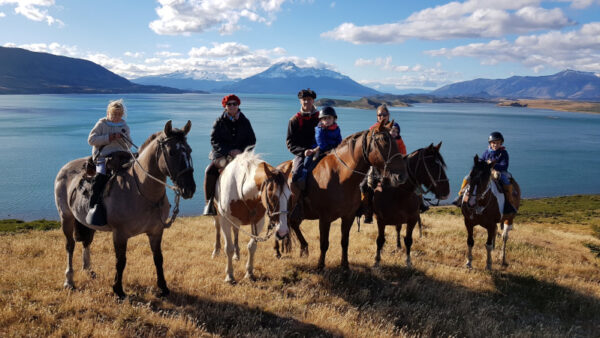NATIONAL
CANADA TABLES NEW AGRICULTURAL GROWTH ACT
The Canadian Government has tabled a new bill titled the Agricultural Growth Act, which is expected to increase producer access to new varieties, create new trade opportunities, contribute to the safety of ag products and reduce red tape in terms of regulations. Key changes being proposed are amendments to the Plant Breeders’ Rights Act to align with the International Union for the Protection of New Varieties of Plants (UPOV ‘91) from Canada’s current legislation, which uses the UPOV ‘78 framework. The amendments also allow for the protection of farm-saved seed, which permits growers to use seeds from the crops they grow. Agriculture Minister Gerry Ritz said the aim is to have UPOV ’91 adopted by Canada at the start of the new crop year, Aug. 1, 2014.
The bill also provides the Canadian Food Inspection Agency with the authority to consider foreign reviews, as well as data and analyses during approval/registration of new agricultural products in Canada. The Act includes a new licensing and registration structure for animal feed and fertilizer operators and establishments, increased monetary penalties for violations, stronger controls for agricultural products at the border and requirements for more stringent record-keeping to enhance the safety of ag products. If the Act receives royal assent, some of the changes could come into force almost immediately, while others would be phased in or require regulatory amendments.
CFIA INVASIVE PLANTS DIRECTIVE UPDATED
The Invasive Plants Directive D-12-01: Phytosanitary requirements to prevent the introduction and establishment of plants regulated as pests in Canada, is now posted on the Canadian Food Inspection Agency website. D-12-01 clarifies the policy to prevent or limit the importation and the domestic spread of plants considered as pests. It explains the invasive plants policy, lists the plants considered to be regulated pests, and indicates that these plants are prohibited from entry to Canada. As new invasive plants are assessed, they will also be added to this directive.
NEW HERBICIDE-RESISTANT CROPS UNDER DEVELOPMENT
Enlist corn is resistant to both 2,4-D and “fop” herbicides used to control grasses. Enlist soybeans are resistant to 2,4-D. The Dow AgroSciences formulation of 2,4-D is less volatile than 2,4-D amine and will be marketed in a premix with glyphosate, called Enlist Duo, for use on Enlist crops, and could be available for the 2015 growing season. Approval of Enlist crops has been delayed by the additional requirement for an environmental impact statement by the U.S. Environmental Protection Agency. Enlist soybeans will be stacked with both glyphosate- and glufosinate-resistant genes as well, which would also allow the use of glyphosate and Liberty herbicides on those crops.
SECAN RESOLVES LEGAL ACTION
SeCan has resolved a legal action it commenced against Leonard Junop and Junop Bros. Seed of Delisle, Sask., for infringement of Plant Breeders’ Rights. “Protection of our plant breeding partners’ intellectual property is something we take very seriously,” says Todd Hyra, business manager of Western Canada for SeCan. The resolution includes a declaration that the defendants will cease any further sales of SeCan’s protected varieties, as well as a cash payment totalling $120,000 in damages. The cash payment will be used to pay royalties owing to the respective plant breeding institutions, with the balance invested in future variety development.
INTERNATIONAL
CANADA/EU REACH HISTORIC TRADE AGREEMENT
Canada and the European Union have agreed in principle on a comprehensive trade agreement that will boost trade and investment ties between the two partners. This is the biggest trade agreement that Canada has ever reached, covering most aspects of the Canada/EU bilateral economic relationship, including trade in goods and services, investment, and government procurement. The agreement will provide Canada with preferential market access to the EU. Canadian agriculture and agri-food sectors stand to benefit significantly from increased access to the 28-country market in Europe. The elimination of approximately 98 per cent of all EU tariff lines on the day the agreement comes into force will mean that Canadian grain producers on the Prairies who export to the EU will likely see an improvement in their bottom lines. Once the final agreement is signed, it will then need to be ratified by respective parliaments.
RR PATENT EXPIRATION WEBSITE
The last U.S. patent covering the original Roundup Ready soybean trait expires in 2015. As farmers think about purchasing soybean seed for 2014 planting, they have a new resource to answer questions about the expiration of Monsanto’s original RR soybean trait at soybeans.com. “Even though the original RR soybean trait is covered by a patent in the United States until the start of the 2015 planting season, we’re already getting questions from farmers about what they can and cannot do with RR soybeans. Soybeans.com can help answer questions growers may have about patents as they pertain to planting and saving original RR varieties,” says Monsanto’s U.S. oilseeds product management lead Norm Sissons. The site outlines Monsanto’s commitments regarding the original RR trait patent expiration, explains patents and breeders’ rights, and also includes frequently asked questions and a decision tree on saving seed.












